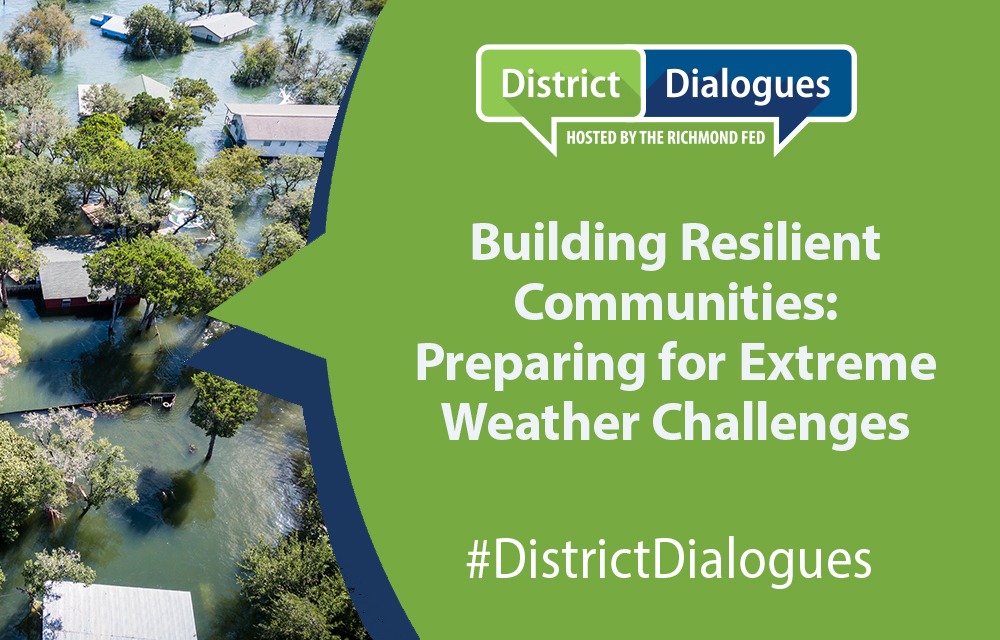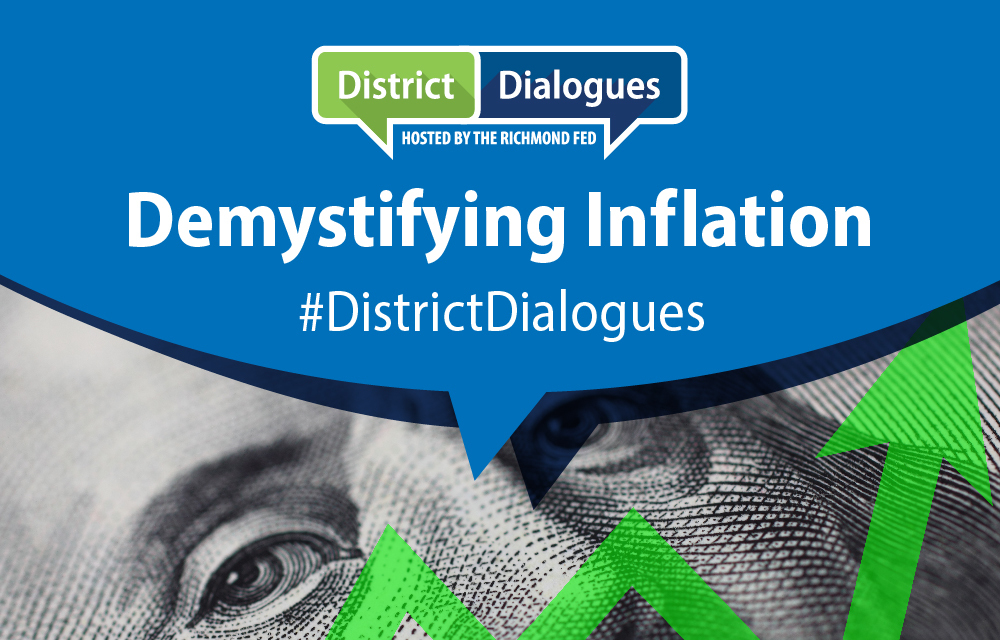Andy Bauer and John Bailey Jones discuss the factors that have shaped the demand for and supply of labor in recent years. They also talk about the barriers to labor force participation in Maryland, including lack of affordable child care and housing. Bauer is vice president and regional executive for the Baltimore branch of the Federal Reserve Bank of Richmond and Jones is vice president of microeconomic analysis.

The Richmond Fed cares about informing the public about issues that affect the economy because transparent communication fosters a better understanding of economic policies and builds trust in the Federal Reserve’s actions. District Dialogue provides a public forum for community members to engage with local, regional and national experts on the most pressing economic issues facing the Richmond Fed’s region and beyond.
During this District Dialogues event, we will explore how small business data often reflects larger economic patterns, discuss the latest research and economic data, including key surveys and indicators, and hear about real-world experiences from the small business community.
Event Summaries and Related Content
On June 26, we held a District Dialogues event at the Baltimore Branch of the Richmond Fed. During this event, our guests and panelists explored the crucial role labor force participation plays in economic growth and stability.
Amanda Neitzel and Santiago Pinto report on the progress of students after the disruptions of the COVID-19 pandemic, differences in the persistence of learning losses, and efforts to remediate these losses. Neitzel is an assistant research professor at the Center for Research and Reform in Education at Johns Hopkins University, while Pinto is a senior economist and policy advisor at the Federal Reserve Bank of Richmond.
















